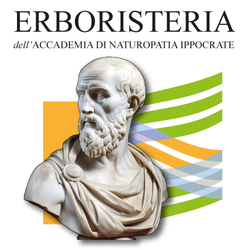Epat-Dren-Plus® By Leo (PVB23) – 50ml
Couldn't load pickup availability
Recommend this product to your friends on social media
Epat-Dren-Plus® Di Leo (PVB23) - 50ml Ingredients: Alcohol, Water, extracts of: PARIETARIA (Parietaria Officinalis L.) aerial parts, PLANTAIN (Plantago Major L.) flowering part, OAK (Ajuga Chamaepitys L.) part flowering aerial part, KENTAUREA (Centaurium Erythraea Rafinesque) Top, FENNEL (Foeniculum Vulgare Miller) seeds, HORESHORE (Marrubium Vulgare L.) flowering aerial part, CHAMOMILE (Matricaria Chamomilla L.) Flowering Plant. Characteristics: Liver and biliary disorders, stimulates bile secretion, choleretic and cholekinetic, against liver failure, digestive failure, biliary dyskinesias, metabolic disorders. Keywords: Liver failure, digestive difficulty, liver purification, anger, intestinal and gastric spasms. In the treatment of liver and digestive insufficiency it is important to combine plants that act on the digestive system, stimulating the purifying action carried out by the liver, and plants that act on the nervous system, regulator of the secretory function of the digestive system itself. It is therefore necessary to use plants containing active ingredients that stimulate digestive activity in a general sense, such as "bitters" with an aperitif action with stimulation of the secretory function of the mouth, stomach and liver: CENTAURIUM ERYTHRAEA (erytaurin and erythrocentaurine), MARRUBIUM VULGARE (marrubina). Plants with a digestive function that stimulate directly or by reflex phenomenon the salivary, gastric, intestinal secretions and the motility of the stomach and intestine, also acting as an antispasmodic, such as: Matricaria chamomilla: bitter principle antenic acid, EO Azulene, which acts on the phenomena spastics of the gastro-intestinal system and its appendages, thus acting on digestive difficulties related to poor gastric and intestinal motility. FOENICULUM VULGARE: its main compound is Fencone EO with a general excitatory action on the organism, appetite stimulant, carminative and stimulating action on bile secretion and diuresis. AJUGA CHAMAEPITYS: eupeptic function and action on biliary diseases. As regards the nervous component of digestion, it is important to act on it, avoiding that excessive nervous tension reduces the blood supply to the digestive system, thus slowing down the digestive function and stimulating excessive production of hydrochloric acid in the stomach with consequent risk of gastritis and peptic ulcer. The plants used for this purpose are: MATRICARIA CHAMOMILLA for its relaxing and calming function on the nervous system and on spasms of the gastrointestinal system (stomach cramps and gastritis); PARIETARIA OFFICINALIS and PLANTAGO MAJOR for their anti-inflammatory action on the stomach wall carried out by: flavonoids, tannic substances and mucilages of PARIETARIA OFFICINALIS, saponins. Dosage: 30 drops 2 times a day, in half a glass of water, 10 minutes before meals. Warnings: Do not take during pregnancy or under three years of age. Content per daily dose: 90 drops make available: Parietaria 76 mg, Plantain 75 mg, Querciola 38 mg, Centaurea 38 mg, Fennel 37 mg, Horehound 37 mg, Chamomile 37 mg. Synergistic protocols LIVER FAILURE: Epat-Dren-Plus® Di Leo (PVB23): 30 drops in half a glass of water 10 minutes before three meals. Depur-Herb® Di Leo (S4 Artichoke c.): 60 to 80 drops, Diges-Herb® Di Leo (S14 Fibrino clover c.)*: 60 to 80 drops together in ½ liter of water to drink for small children sips throughout the day. *Contraindicated in case of ulcer, gastritis or diarrhea.
Note : the information contained in this booklet is not intended to replace the advice of the Doctor, who is responsible for any prescription and therapeutic indication. This information is only an information guide and should absolutely not be disclosed to the public; it is reserved only for qualified people in the fields of Medicine, Food and Pharmacy (art.6 paragraph II of Legislative Decree 111 of 01.27.92).



